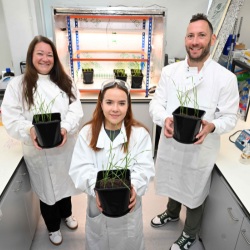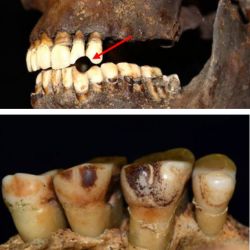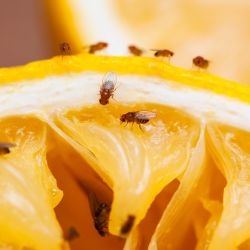Northumbria expands results day support for students
Northumbria University is expanding and enhancing the support it provides to students receiving…
International
Northumbria’s global footprint touches every continent across the world, through our global partnerships across 17 institutions in 10 countries, to our 277,000 strong alumni community and 150 recruitment partners – we prepare our students for the challenges of tomorrow. Discover more about how to join Northumbria’s global family or our partnerships.
View our Global FootprintBusiness
The world is changing faster than ever before. The future is there to be won by organisations who find ways to turn today's possibilities into tomorrows competitive edge. In a connected world, collaboration can be the key to success.
More on our Business ServicesResearch
Northumbria is a research-rich, business-focused, professional university with a global reputation for academic quality. We conduct ground-breaking research that is responsive to the science & technology, health & well being, economic and social and arts & cultural needs for the communities
Discover more about our ResearchAlumni
Northumbria University is renowned for the calibre of its business-ready graduates. Our alumni network has over 253,000 graduates based in 178 countries worldwide in a range of sectors, our alumni are making a real impact on the world.
Our AlumniLycopene- Eat tomatoes for a healthy heart.
Jose Lara Gallegos 02/06/23
Lycopene is a carotenoid—a family of natural pigments that give fruits and vegetables their red, orange, and yellow colour. Humans cannot synthesise carotenoids, so they must be obtained through our diets. Lycopene is one of the most powerful antioxidants whose function is to eliminate dangerous free radicals that can damage DNA.
Several foods including tomatoes, guavas, watermelon, grapefruits, or red peppers are rich sources of lycopene in our diets. Tomatoes and tomato derived products (sauces, juice, concentrates) are perhaps the most consumed lycopene rich food and their potential health benefits are significant. Tomatoes originate from South America, but they are widely consumed around the world, either raw as part of salads, as tomato juice, as part of different cooked dishes, or as condiments.
Research from epidemiological studies has shown that a diet rich in lycopene-containing foods may help lower the risk of stroke and cardiovascular diseases. These studies show that within a population, those individuals reporting the highest consumption of lycopene or lycopene-rich foods, in comparison with the lowest or no consumption, seem to have 25% less chances to get a stroke, and 14% lower chances to get cardiovascular diseases. Using a more objective way to classify individuals, those with the highest serum concentration of lycopene showed a 37% lower risk to die. In line with epidemiological evidence, evidence from intervention trials in which participants are asked to consume tomatoes or lycopene supplements, show that consuming tomatoes improves several cardiovascular risk factors such as LDL-cholesterol, interleukin IL6, systolic blood pressure, or the flexibility and health of our arteries. Improving these cardiovascular risk factors could potentially result in the above cited prevention of cardiovascular diseases. This evidence is important considering that cardiovascular diseases are a major cause of death, being responsible for 1 in 4 deaths in England .
There is currently no formal recommendation for lycopene consumption. However, from the current studies, intakes between 8–21 mg per day appear to be most beneficial.
While lycopene is considered safe and there are no established upper limits recommended for its consumption, high levels of lycopene may not be suitable for individuals with low blood pressure, stomach ulcers, or pregnant or breastfeeding women. Some reported case studies of extremely high lycopene intake (2 litres of tomato juice daily over several years by a 61 year old woman) have led to slight skin discoloration that resolves after following a diet lower in lycopene.
Therefore, there is significant evidence supporting the consumption of tomatoes and other lycopene-rich foods as part of a healthy diet to improve our cardiovascular health.
How to eat
The versatility and low cost of a lycopene and nutrient rich shakshuka make it an excellent family choice. Try stewing canned tomatoes, onion, red peppers, eggs and baby spinach in passata, with added tomato puree, cumin, paprika and chilli flakes to taste. Serve with fresh herbs, yoghurt and fresh bread.

Northumbria University is expanding and enhancing the support it provides to students receiving…

With the global population expected to reach 10 billion by 2050 and crop yields declining annually,…

An Assistant Professor at Northumbria University won the Royal Society of Chemistry’s Award…

Researchers from Northumbria University have discovered that smokers have tell-tale signs of…

Northumbria University has been named Higher Education Institution of the Year at a prestigious…

Two biomedical sciences researchers from Northumbria University have been awarded grants to…

The Spring 2025 edition of Northumbria University’s newspaper is available to collect on campus…

Scientists have discovered that flies can demonstrate play-like behaviour – the first time…